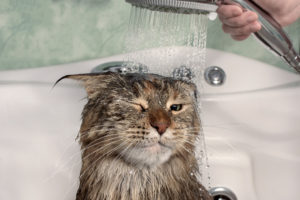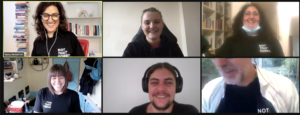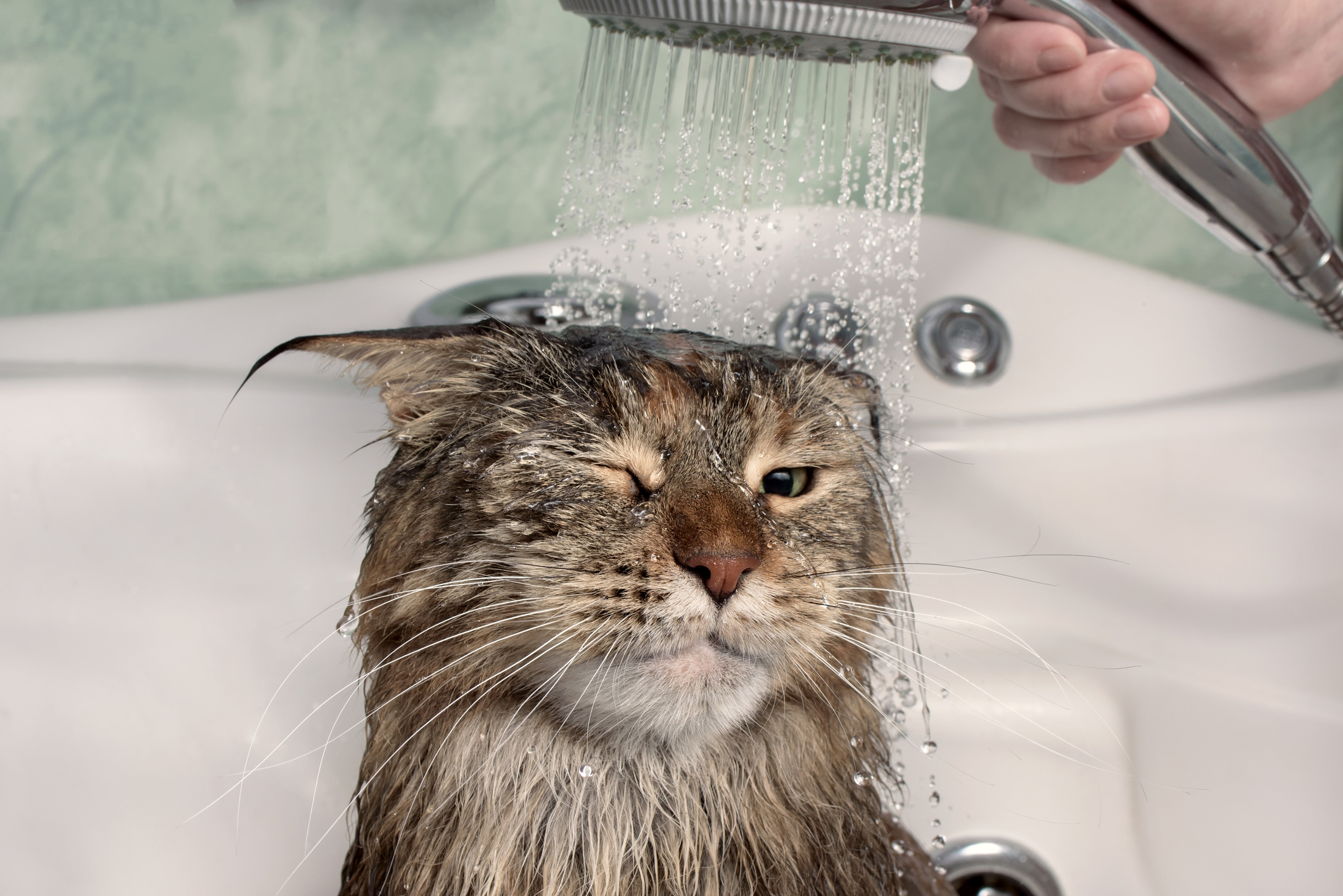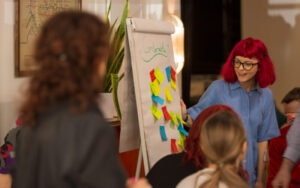Hi, I’m Wyse and I’ve been the marketing manager for CRR UK for the past 3 years. You may know me from content such as “ORSC series testimonials”, or using pictures of cats in the shower…

I’m leaving this role to pursue my dream of making music full-time. But before I go, I want to tell you a story. It’s a story about how ORSC changed my life whilst I was at CRR UK, and how it totally transformed our company. It’s a rollercoaster of a tale, full of drama, twists and turns. What more could you want from a story?
How our team relationship began…
When I joined CRR UK, I was the only full-time member of staff, other than Nairy, the CEO. I didn’t know much about the coaching world. Any previous marketing experience had been in the music industry. Nairy wanted somebody with a different kind of perspective from a creative industry to come into the role, and that’s where I came in.
A confession…
We are going to let you in on a reality that most businesses of our nature would probably never admit, but probably many are guilty of. During my first 1.5 years of working at CRR UK, we did NOT practice what we preach. We did use ORSC tools in our meetings, such as the Designing a Team Alliance tool from ORSC Fundamentals, but we didn’t prioritise using them effectively at all. It felt like Nairy and I were on different pages, like we were speaking different languages to each other. We were just so different as people: our communication styles, our backgrounds and our age gap. We couldn’t see how these differences could make our relationship strong and we clashed a lot. Our relationship didn’t seem rectifiable.
A road to change…
I experienced ORSC Fundamentals in October 2018. One of the biggest mind-set shifts I had on that course was learning that conflict can be healthy for a relationship. I remember thinking what? Aren’t arguments a sign of a bad relationship?
I simply couldn’t understand how admitting feelings to somebody could ever help anything, because that had never helped me before so why should it now? This is the key piece for later in this story.
Reaching an edge…
During lockdown, I experienced a mental breakdown due to the isolation of living alone and personal problems. This was one of the most terrifying experiences of my life. When I came out of that, I realised I must start initiating change in some of the relationships in my life.
A “non-toxic” conflict…
Armed with the feeling of nothing to lose, I used what I had learnt about conflict and let my true emotions come to the surface in an unguarded and unapologetic way, for the first time probably ever.
Nairy’s response when I let my emotions show? She just listened. This was the first time I had ever had somebody really listen to me. And it was a very powerful move on her part. For the first time, I experienced the positive impact that confrontation can have on the “right” relationship. The right relationship being, in my mind, when everyone involved is dedicated in finding what is “right” in others, and is not only committed to listening to each other’s needs, but is also willing to take action.
A key takeaway…
Behaviours during conflict are key indicators to the survival of a relationship. We often absorb this information without even consciously realising it, as demonstrated very insightfully by John Gottman, who’s research is one of the foundations of ORSC.
I learnt in that moment with Nairy, that my confrontation was actually my invitation for her to notice my pain and to address the relationship, together. She accepted my invitation, and this is the essence of why (non-toxic) conflict makes relationships stronger.
I think the reason many of us hesitate to confront somebody and present our needs clearly, is that we have no control over the other person’s response. That can feel unnerving and risky. But from this situation and others proceeding it, I have never regretted taking that risk – even though it can still be hard.
It would have been easy for one of us to walk away. But in that moment, we chose to do it the ORSC way and find what was right in each other. And in this instance, it led to a new, thriving era for our team relationship, or a “myth change” as known in ORSC Path.
A transformation…
Through our new alignment, we worked very hard to incorporate ORSC tools and skills into our meetings and interactions. Nairy employed an ORSC coach, who has gone through our curriculum, to provide us with team coaching. As more team members joined, we continued to expand on this, and we could see how our system culture was totally unrecognisable to what it used to be.
I’m Not That Sorry
In the crux of the situation before, I wrote a song called Not That Sorry to help me vent my frustrations from that tense relationship, as well as others in my life at that time.
The perfect demonstration of how much our team culture has transformed is this:
I told Nairy that I wrote this song a couple of years ago based on the situation, which was not an easy conversation because as a piece of art, is exaggerated for effect so I wasn’t sure how it would feel for them to hear it. A year and a half later, they all came to one of my shows in London and bought the merch t-shirt for this song and wore it to my final team meeting!

Onwards…
Leaving CRR UK now, I feel totally supported. I feel understood, I feel heard, I feel appreciated for everything I have done for this company, and I appreciate everything that they have done for me. From overcoming our hurdles and helping each other to grow, we have achieved what I feel and hope to be a life-long connection. Nairy and the team now feel like family to me.
CRR UK: Nairy, Keith, Claire, Radu, Cristina, Laura and formally Mel, have supported me not only through my work at CRR UK, but also just as a human being outside of work. They have encouraged me and equipped me as best they can for the next stage of my journey, which is to continue to build my own business. And for that, I will be forever grateful.






